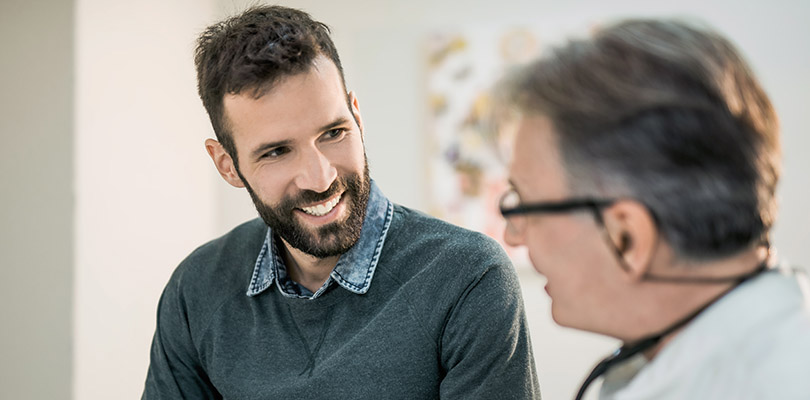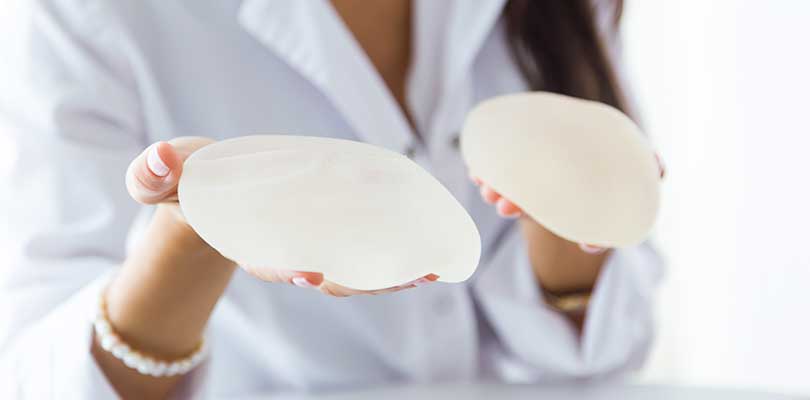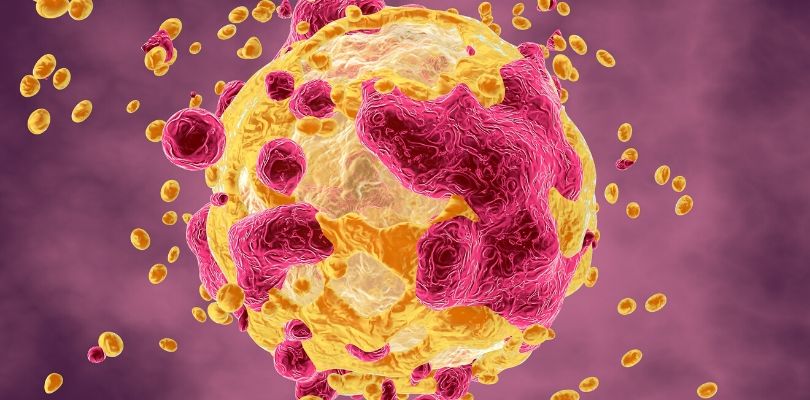Prostate Cancer Prevention
Prostate cancer is a concern for several reasons, and one of those reasons is that accurate prevention of this cancer has not yet been identified. Researchers are working to crack the code as to what causes prostate cancer which will help narrow down prevention techniques that are guaranteed to work. Based on current research, this article outlines some suggestions on how to try to prevent prostate cancer.
What Is Prostate Cancer?
Prostate cancer is one of the most common cancers for men and originates in the prostate.
The prostate is a walnut-sized gland below the bladder that surrounds the urethra. Its function is to produce the seminal fluid that transports sperm.
Prostate cancer occurs when mutant (cancer) cells cluster together to form a tumor, and these cells can grow into surrounding healthy tissue and destroy it. Depending on the type of prostate cancer, growth can either be slow or aggressive. It’s more common that this type of cancer grows slowly and stays within the prostate gland.
Five Ways to Practice Prostate Cancer Prevention
There are some things you can do to try to prevent prostate cancer. Here are five prostate cancer prevention tips to implement into your lifestyle today:
See Your Doctor and Get Regularly Screened
As you age, it’s important to get a rectal examination and prostate-specific antigen (PSA) every year. While these exams aren’t a preferred use of your time, these screening tests can help you get a diagnosis early when cancer is easier to treat.
These screenings also give patients the opportunity to make informed decisions on how to pursue treatment with their doctor; this isn’t always a luxury afforded to those diagnosed with late-stage cancer.
If you’re over 40 and African-American or you have a family history of prostate cancer, get an exam. If you’re 50 and over, get an exam every year – even if you don’t have a history of prostate cancer in the family.
Change Your Diet
It’s no surprise that eating healthy makes this list. Eating clean helps take care of your body, and a healthy diet contains cancer-fighting phytonutrients. Phytonutrients are produced by plants and contain the vitamins and nutrients that are essential to promote prostate health.
Studies have shown that diets rich in plant-based foods stimulate the immune system, prevent substances we ingest from becoming carcinogens, aide in DNA repair, slow the growth rate of cancer cells, and reduce inflammation.
Here are some things to consider when overhauling your diet:
- Make vegetables, whole grains, and fruits a big part of your diet.
- Focus on an anti-inflammatory diet which includes clean proteins, healthy fats, and antioxidants.
- Some foods are rich in super nutrients that support the prostate, and they include kale, broccoli/broccoli sprouts, collard greens, and cabbage.
- Cut out high-fat foods. Healthy diets have good fats such as olive or coconut oil, nuts, seeds, etc.
- Eliminate processed foods from your diet to optimize your health.
- Foods rich in omega-3 fatty acids and zinc promote prostate function so make sure you include these in your diet.
- Try to eat healthy foods instead of relying on supplements to take care of you (your doctor will agree!).
Cancer-fighting foods are foods that have the ability to help lower your risk of getting cancer if you include them in their diet.
Use Natural Products
There are health hazards when you use chemical-based products; exposure to these toxins can affect your prostate (and your health in general) negatively. Avoid xenoestrogen-containing substances found in plastics, personal care products (body cleansers, shampoos, soaps, etc.), and household cleaning products.
Bisphenol A (BPA) is a chemical product that is used to make some plastics and resins. Containers made from BPA are used to package a variety of product, including food and beverage containers. BPA is associated with some cancer risks, which includes prostate cancer.
Adopt a Prostate Healthy Lifestyle
Some lifestyle tweaks will help you defend against prostate cancer.
Simple things like getting enough quality sleep at night, breaking smoking habits, switching to prostate-friendly medications, and lowering your alcohol consumption can all affect your prostate for the better.
There are also studies that suggest that a healthy sex life can be an important part of a healthy prostate, but these studies have not been conclusive.
Another thing to note: if you take supplements, don’t overdo the calcium. Supplemental doses above the recommended daily allotment are not a good idea, so see your doctor if you are planning to add supplements to your daily routine.
Exercise
Staying active contributes to your overall health. Men who exercise may have a lower risk of prostate cancer. Prostate health depends on oxygenation from fresh blood. If you’re not putting in the effort to work up a sweat, the body doesn’t pump enough oxygen-rich blood, and this can lead to blockage in the prostate.
There is evidence that men who don’t exercise have higher PSA levels. People who sit for long periods of time have a higher risk of developing prostate cancer than others. To fight this, make sure you exercise most days of the week. Start slow and gradually increase the time you spend working out or increase the intensity as your body adjusts to working out consistently.
Is there Medication Available for Prostate Prevention?
Research findings suggest that medication as prevention is a controversial suggestion. Prescribed medications can be given to control or relieve cancer symptoms, and it’s available depending on a few factors, such as how aggressive the cancer is, whether it has metastasized, and your preferences for treatment.
5-alpha reductase inhibitors may reduce one’s overall risk of developing prostate cancer, however, it has been suggested that these drugs may also contribute to prostate cancer. Drug development is an ongoing science, and alternative drugs may be on the market. Check with your doctor to see what your options are.
The Takeaway
While the evidence is not strong enough for conclusive recommendations as to what definitively protects against cancer, living your healthiest life is always the best place to start.
Equip your body with a healthy intake of food, exercise, and visit your physician annually to defend yourself against prostate cancer.







